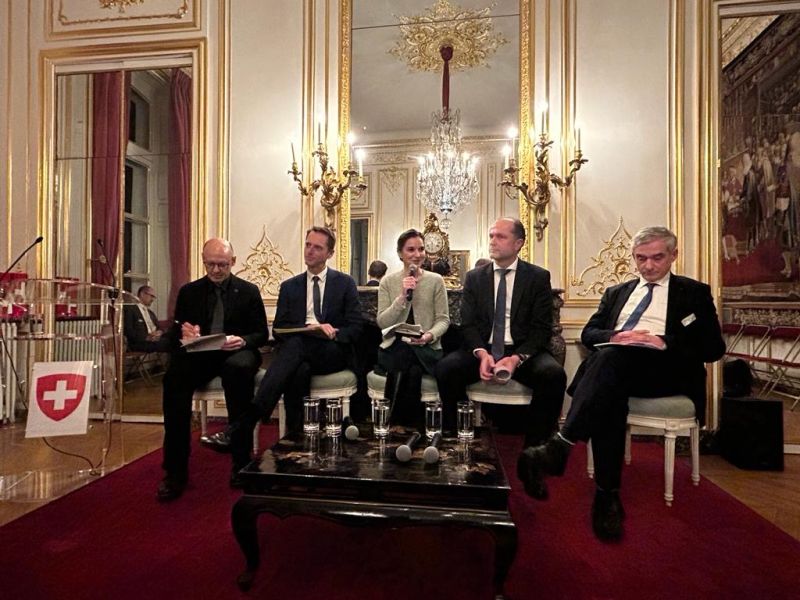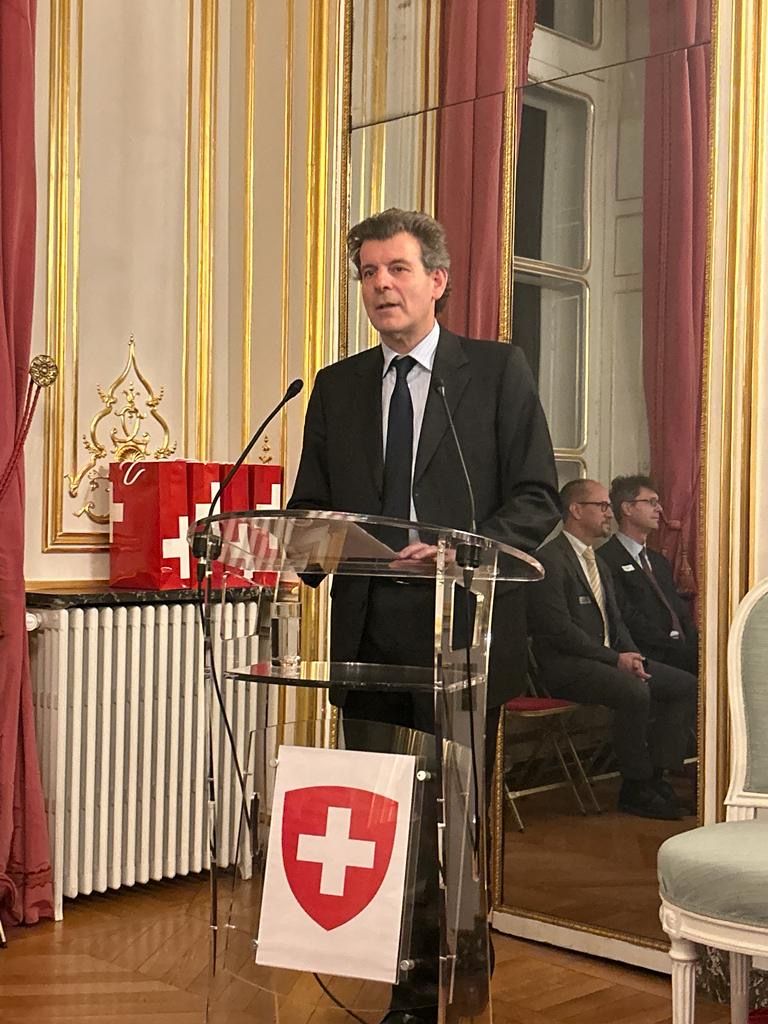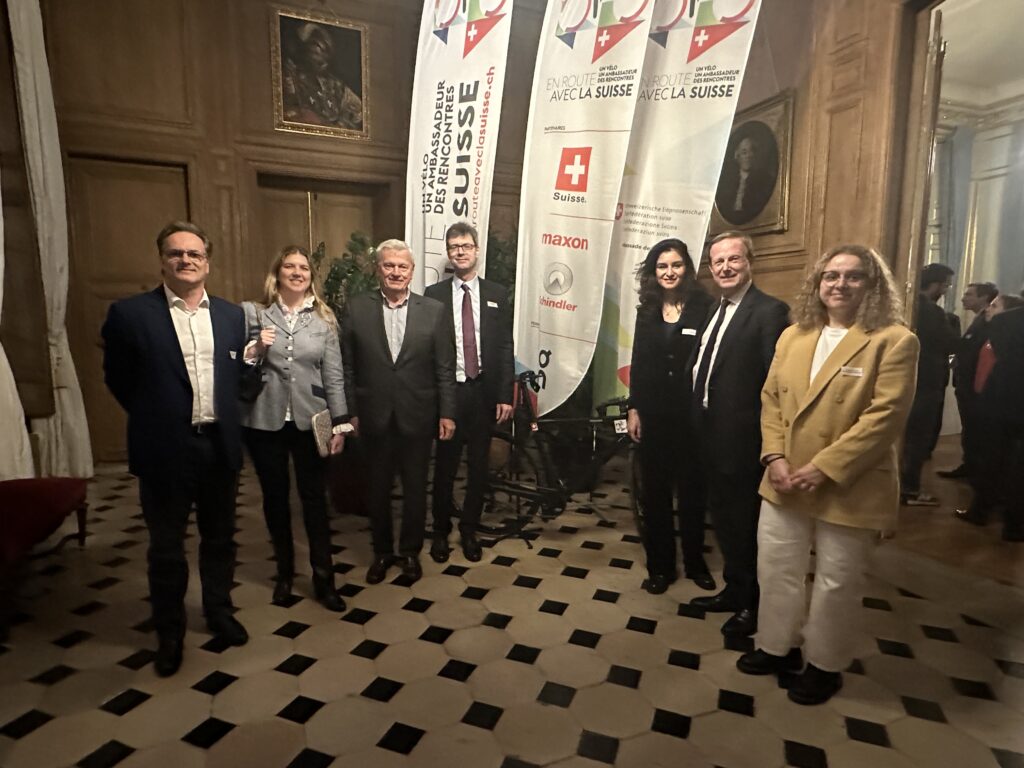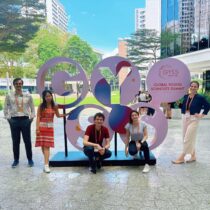Nuclear Power: Uniting Perspectives on a Divisive Topic
December 19, 2023
The challenges to achieving energy transition are many and complex. Societal, economic and geopolitical considerations loom, while the clock is already ticking. In this context, the ETH Alumni Chapter France together with the Swiss Embassy in France brought together ETH Alumni, researchers, government representatives and industry experts to assess the civil nuclear sector, focusing on prospects and challenges from a Franco-Swiss perspective.
The Swiss Ambassador Roberto Balzaretti made this clear from the start: we need cooperation on this at a bilateral and European level. Reminding us of Switzerland’s central position geographically speaking and the long history of good relations between France and Switzerland, Ambassador Balzaretti urged the search for solutions close to home. He used the analogy of Switzerland as the “water tower of Europe” to highlight its success in developing hydro-electric power. At the same time, this position has not been enough to keep fears of energy crises from cropping up against the background of recent geopolitical developments, reiterating the need for Franco-Swiss and indeed European collaboration.

The Ambassador is himself a shining example of promoting innovation and sustainability, notably by using his bike to travel through France on his mission to engage in diplomatic discussions and meet the Swiss living there (https://enrouteaveclasuisse.ch).
Laurent Kueny from the French Ministry of Ecological Transition and Territorial Cohesion spoke of the trajectory for achieving carbon neutrality by 2050 using efficiency gains, more and new sources of renewable energy, and going back to nuclear power. In the French energy strategy, this means new nuclear power as well as renewing and prolonging existing nuclear stations. Doing this while achieving the required capacity on time and on cost will prove to be a challenge.
Financing was also a concern of his Swiss counterpart, Benoît Revaz, from the Federal Office for Energy. In addition, security and safety concerns and the need for trained staff as well as updates in regulations highlight what for him needs to be a balance between economic and environmental challenges, that have to be addressed within a shrinking time frame.

(Viktoria Ivarsson)
Representing the industry voice, EDF spokesperson Bernard Salha, who is both CTO and Head of R&D at the French multinational state-owned electric utility company, focused on the need for nuclear as part of the solution. His point was that all technology, and indeed a mix of it, will be required to de-carbonize. The numbers in terms of need and demand are so big that we have no choice, and a change in perception of the industry will have to take place.
This point was nuanced by the ETH Domain representative Didier Gavillet from the Paul Scherrer Institute (PSI). As Advisor to the Head of Nuclear Energy and Safety Research, Didier reminded the audience of the need for continued investment in fundamental research, of which nuclear energy is a part. His point was that we need to decarbonize and use the right mix of technologies to do so, but without creating new dependencies that are not sustainable in the long run.
Overall, the very focused conversation was a deep-dive into experts views on the now, offering glimpses into the tomorrow with a refreshing spirit of optimism and faith in new technologies, start-ups and innovation, in a topic otherwise often associated in the press with catastrophism and skepticism. This spirit prevailed largely thanks to the expert moderation of Diana-Paula Gherasim, an energy and climate researcher from the think tank IFRI, the French Institute for International Relations.

The AFLZ is the French association of graduates of the Swiss Federal Institutes of Technology in Lausanne and Zurich. The AFLZ hosts the ETH Alumni Chapter France. The AFLZ is very dynamic, with numerous events: conferences, site visits, theaters, dinners, etc., and has developed a fruitful relationship with the Swiss Embassy in France.





